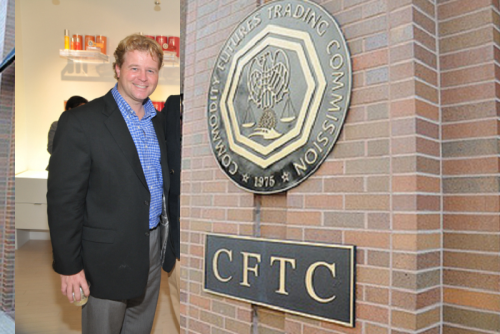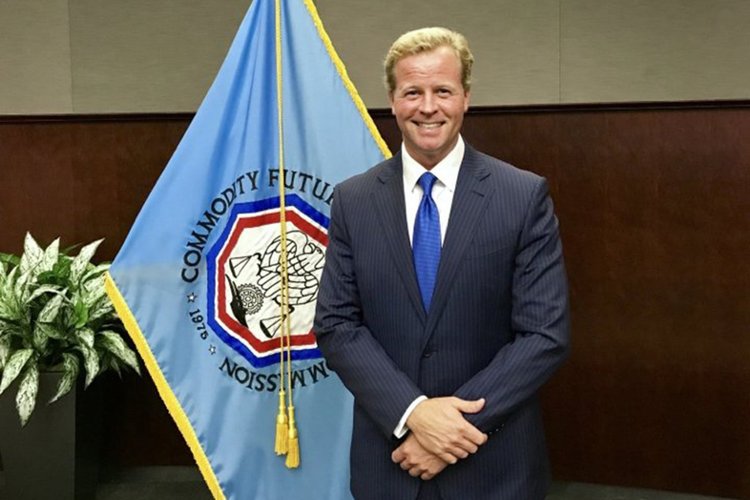Brian Quintenz, the former founder and CEO of Saeculum Capital Management, currently the representative of the U.S. Commodity Futures Trading Commission (CFTC), has spoken in favor of a detailed approach to regulating smart contracts that use blockchain as their base during 38th Annual GITEX Technology Week Conference in Dubai. Quintenz concerns are based on the accountability issue regulators are facing with the new era of products to which the old laws cannot be applied.
Speaking about the use cases CFTC representative has stressed that “smart contracts are easily customized and are almost limitless in their applicability”.
According to Quintenz, some smart contracts resemble traditional financial products more closely. For instance, people who have provided prescient information about the future of money, for example, stock performance, could offer their information to be purchased through smart contracts. Contingent on the realities and conditions, this action could be a case for regulation. According to Quintenz, It could look like “providing investment advice” or, given the obscurity of the predictions, “could be used nefariously to facilitate insider trading”.
There are other protocols where people can create their own smart contracts for future events with the cryptocurrency involved, like betting on sports or the results of the elections. Depending on the situation, these cases can create what CFTC calls a “prediction market”, where individuals use so-called “event contracts”, binary options, or other derivative contracts to bet on the occurrence or outcome of future events.
Quintenz reminded that earlier the CFTC has mostly banned such prediction markets “as contrary to the public interest”, excluding only the cases when nobody can benefit that serve academic purposes.
But what steps should CFTC take if it learns of a smart contract protocol that may implicate its regulations?
As the first step, CFTC would have to analyze if the smart contract is within its jurisdiction and if so, if it complies with the CFTC regulations. There are a lot of parameters which have to be approached individually by CFTC. At this point, Quintenz explains that he has his own ideas regarding whom to hold responsible for a non-complying smart contract.
In his opinion; if code developers could foresee a potential way of violative use of their smart contract by a U.S. citizen, and still didn’t do anything to prevent it, they must be prosecuted because they aided and abetted violations of the CFTC regulations.
In short, gun makers kill people, people just use guns. Qunitenz also says: “It seems likely that determined users will be able to gain access”, when explaining why going after individual people is not effective.
This bit is quite controversial: if “determined users” can gain access anyway, how code developers are expected to foresee and prevent every potential misuse of their smart contracts?
Quintenz mentions the creation of LabCFTC by Chaiman Giancalo, a group that aims to interact with fintech community and basically learn what the technology is about and how the products can fit in the CFTC regulations. He adds: “I would much rather pursue engagement than enforcement – but in the absence of engagement, enforcement is our only option”.
Meaning that before even launching a smart contract code developers should cooperate with CFTC, or else.
Quintenz talks about potential risks of blockchain by giving examples of 51% attacks and questioning if all participants are aware of these risks or if committing to a decentralized system means acknowledging unknown risks by default. Even so, for him, it’s not good enough, so the community must be protected by good old laws based on fair dealing and good faith.
Let’s remember that almost all cryptocurrency, dApp, the blockchain, and ICO reviewers always mention the same thing “invest/enter at your own risk”.
In conclusion of his speech, Quintenz reads a quote from Carl Sagan, a late brilliant American scientist: “we live in a society exquisitely dependent on science and technology, in which hardly anyone knows anything about science and technology” and adds that he hopes Sagan’s diagnosis does not apply to the U.S. Commodity Futures Trading Commission.
A hope the whole crypto community shares.
Subscribe to our Telegram channel to stay up to date on the latest crypto and blockchain news.




